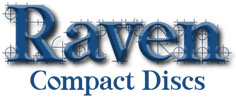 |
Categories |
 |
 |
•Adam Brakel, Organist
•Adam Pajan, Organist
•Ahreum Han, organist
•Air & Hammers, Edmund Connolly, baritone; Maxine Thévenot, keybd
•Albert Ahlstrom, Organist
•Ambiente CD Label
•Andreas Jetter, Organist
•Andrew Ennis, Organist, Brass Player
•Andrew Scanlon, organist
•Andrew Unsworth, Organist
•Andrus Madsen
•Angela Amodio, organist
•Angela Kraft Cross, Organist
•Anthony Hammond, organist
•Anton Heiller
•Artis Wodehouse, harmoniumist
•Aude Heurtematte, organist
•Barbara Raedeke, Organist
•Books
•Bradley Burgess, organist
•Brenda Portman, Organist
•Cantate Chamber Singers
•Carla Edwards, Organist
•Charles Echols, Organist
•Christian Brembeck, Organist
•Christina Harmon, Organist
•Christoph Kuhlmann, Organist
•Christophe Mantoux, organist
•Colin Booth, harpsichordist
•Colin Lynch, Organist
•Damin Spritzer, Organist
•Daniel Sanez, Organist
•David Heller, Organist
•David Pickering, Organist
•Diane Luchese, Organist
•Donald Pinson, Trombone
•Donald Sutherland, Organist
•Dongho Lee, Organist
•Earl Miller, Organist
•Faythe Freese, organist
•Franz Josef Stoiber, organist
•Fugue State Films productions
•George Bozeman, Organist
•Gerard Brooks, organist
•Gordon Stewart, organist
•Gordon Turk, Organist
•Graham Barber, organist
•Harmonium
•Harry Lyn Huff, Organist
•Harry van Wijk, organist
•Helga Schauerte-Maubouet, Organist
•Historic Organ Study Tours
•Houston Baroque, Patrick Parker, Artistic Director
•Ikarus Kaiser, organist
•Isabelle Lagors, harp; Christian Ott, organist
•J. Thomas Mitts, Organist
•Jack Mitchener, Organist
•Jamila Javadova-Spitzberg, organist
•Jan Hennig, Harmonium
•JanEl Will, organist
•Jason Alden, Organist
•Jeremy David Tarrant, organist
•Jeremy Filsell
•Jeremy Thompson, organist
•Johannes Hämmerle, organist
•Johannes Matthias Michel, organist
•John Scott Whiteley, Organist
•Jon Gillock, Organist
•Jonathan Ryan, Organist
•Kathleen Scheide, Organist
•Kensuke Ohira, organist
•Kola Owolabi, Organist
•Las Cantantes, Women's Choir, University of New Mexico
•Laura Ellis, Organist & Carillonneur
•Lukas Nagel, organist
•Marcus St. Julien, Organist
•Mark Brombaugh, Organist
•Mark Steinbach, organist
•Markéta Schley Reindlová, organist
•Martin Kohlman, organist
•Martin West, organist
•Michael Surratt, organist
•Nathan Laube, organist
•Nicolas Haigh, Organist
•Nicole Keller, organist
•Parker Ramsay, organist
•Patrick Scott, Organist
•Peter Holder, Organist
•Peter Richard Conte, Organist
•Peter Stenglein, organist
•Phillip Kloeckner, Organist
•Pier Damiano Peretti
•Polyphony Voices of New Mexico
•Rachel Laurin, Organist, Composer
•Raymond Weidner, Organist + Composer
•Rebecca Davy, organist
•Rebecca Kellerman, soprano
•Robert Murray, violinist
•Roger Sayer, Organist
•Roman Summereder, organist
•Rudolf von Beckerath Organs
•Russell Jackson, Organist
•Russell Weismann, organist
•Scott Montgomery, Organist
•Sheet Music
•Simon Thomas Jacobs, organist
•Stephen Price, organist
•Stephen Williams, Organist
•Susan Moeser, Organist
•Testing_HW
•The Hot Air Duo: J. Bryan Dyker, flute; George Bozeman, organ
•The Wanamaker Organ
•Timothy Olsen, Organist
•Tobias Horn, Organist
•Todd Wilson, Organist
•Tom Bell, Organist
•Wayne Marshall, Organist
•Will Fraser, Author
•William Aylesworth, organist
•Winfried Lichtscheidel, organist
•Wolfgang Rübsam, organist
•Wyatt Smith, Organist; Tracelyn Gesteland, mezzo-soprano
•Yuan Shen, Organist
•Yun Kim, Organist
•Christmas & Advent Recordings
•Harpsichord, Clavichord, Fortepiano
•Video DVD with CD
•J. S. Bach Complete Organ Works, George Ritchie, Organist
•J. S. Bach Organ and other keyboard Works, Various Players
•New & Recent Releases
•Important Organs & Fine Organists
•Aeolian-Skinner & Skinner Organ Co. Organs
•Works by American Composers
•Tannenberg Organs
•Tours of Organs
•Thomas Bara, Organist
•Thomas Baugh, Organist
•Anthony Burke, Organist
•John Brock, Organist
•Jonathan Dimmock, Organist
•Ken Cowan, Organist
•Jesse Eschbach, Organist
•Eleanor Fulton, Organist
•Matthew Glandorf, Organist
•James Hammann, Organist
•Elizabeth Harrison, Organist
•Will Headlee, Organist
•Clyde Holloway, Organist
•Brad Hughley, Organist
•Martin Jean, Organist
•Calvert Johnson, Organist
•Peter Latona, Organist
•Alison Luedecke, Organist
•Christopher Marks
•Lorenz Maycher, Organist
•Marian Metson, Organist
•Karl Moyer, Organist
•Thomas Murray, Organist
•John Near, Organist
•Murray/Lohuis Duo: Works for Violin and Organ
•Bruce Neswick, Organist
•Frances Nobert, Organist
•Wesley Parrott, Organist
•Iain Quinn, Organist
•Stephen Rapp, Organist
•Lois Regestein, Organist
•George Ritchie, Organist
•Schuyler Robinson
•Timothy Edward Smith, Organist
•Murray Forbes Somerville, Organist
•Bruce Stevens, Organist
•Daniel Sullivan
•Peter Sykes, Organist
•William Teague, Organist
•Maxine Thévenot, Organist
•Marijim Thoene, Organist
•Timothy Tikker, Organist
•Tom Trenney, Organist
•Marcia Van Oyen, Organist
•Martin Weyer, Organist
•Choral & Mostly Choral CDs
|
 |
|
|
 |
Quick Find |
 |
|
 |
Information |
 |
|
 |
| 0 items |
 |
|
|
 |
Tell A Friend |
 |
|
|
|
|
| The Organ Sings - Organ Music by David Dahl; Mark Brombaugh, Organist - [OAR-953] |
$15.98 |
|
 |
|
|
 |
|
|
|
|

